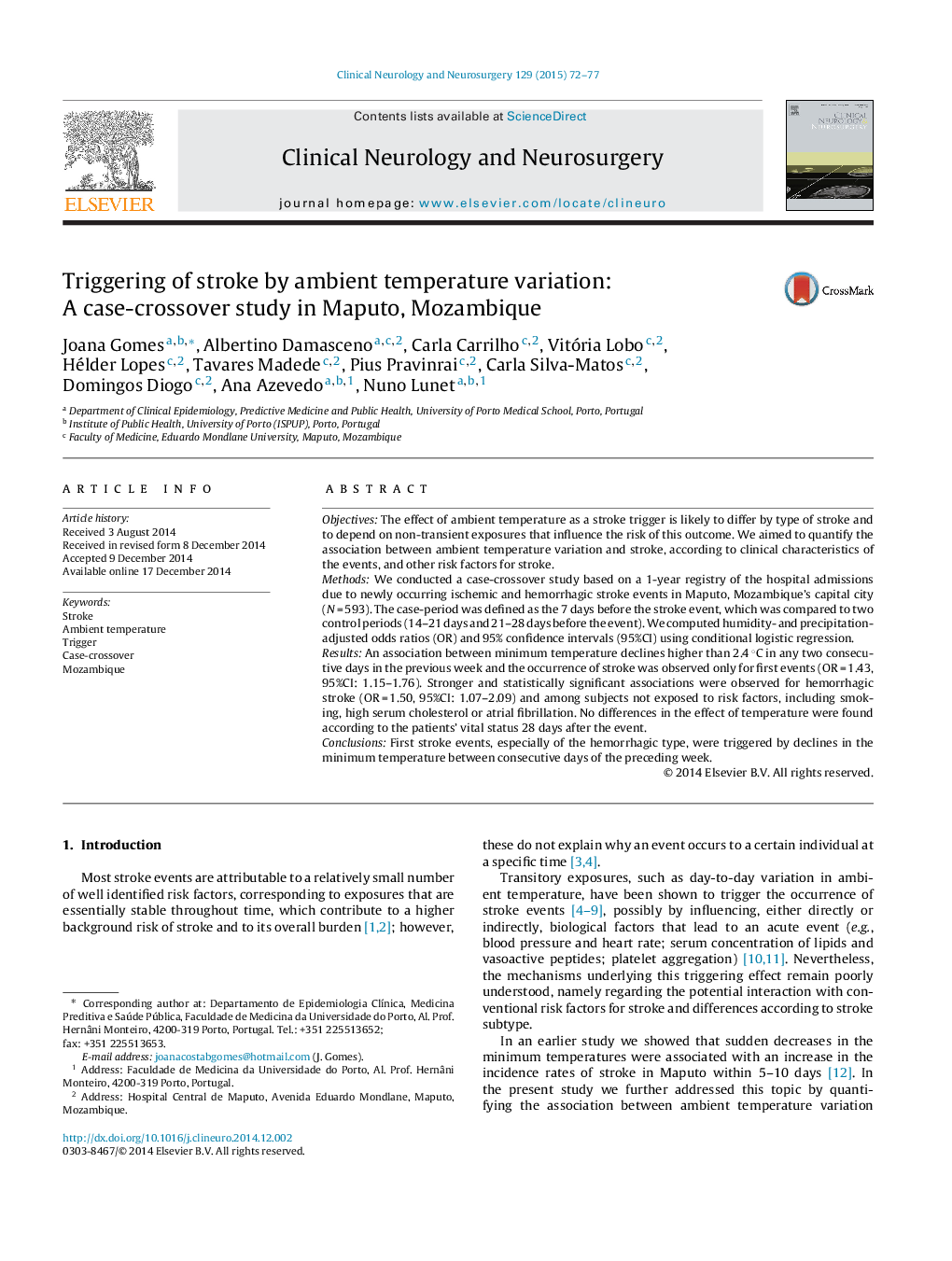| کد مقاله | کد نشریه | سال انتشار | مقاله انگلیسی | نسخه تمام متن |
|---|---|---|---|---|
| 3039979 | 1579693 | 2015 | 6 صفحه PDF | دانلود رایگان |
• Sudden declines in minimum temperature ≥2.4 °C were associated with the occurrence of stroke.
• This association was only observed for first events.
• There was a stronger association for hemorrhagic events.
ObjectivesThe effect of ambient temperature as a stroke trigger is likely to differ by type of stroke and to depend on non-transient exposures that influence the risk of this outcome. We aimed to quantify the association between ambient temperature variation and stroke, according to clinical characteristics of the events, and other risk factors for stroke.MethodsWe conducted a case-crossover study based on a 1-year registry of the hospital admissions due to newly occurring ischemic and hemorrhagic stroke events in Maputo, Mozambique's capital city (N = 593). The case-period was defined as the 7 days before the stroke event, which was compared to two control periods (14–21 days and 21–28 days before the event). We computed humidity- and precipitation-adjusted odds ratios (OR) and 95% confidence intervals (95%CI) using conditional logistic regression.ResultsAn association between minimum temperature declines higher than 2.4 °C in any two consecutive days in the previous week and the occurrence of stroke was observed only for first events (OR = 1.43, 95%CI: 1.15–1.76). Stronger and statistically significant associations were observed for hemorrhagic stroke (OR = 1.50, 95%CI: 1.07–2.09) and among subjects not exposed to risk factors, including smoking, high serum cholesterol or atrial fibrillation. No differences in the effect of temperature were found according to the patients’ vital status 28 days after the event.ConclusionsFirst stroke events, especially of the hemorrhagic type, were triggered by declines in the minimum temperature between consecutive days of the preceding week.
Journal: Clinical Neurology and Neurosurgery - Volume 129, February 2015, Pages 72–77
